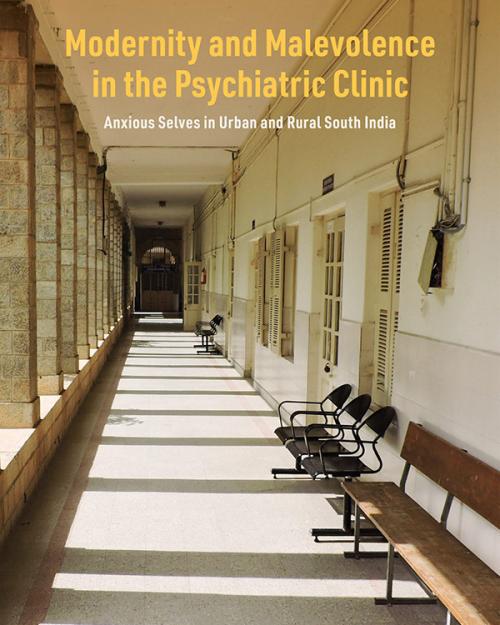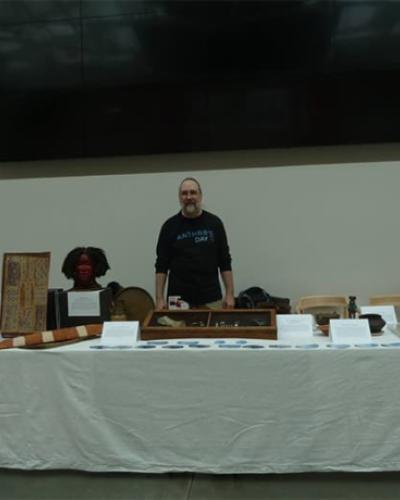The Department of at Cornell joined with more than 180 registered organizations from all over the world in celebrating Day on February 16th. World Day is organized by the American Anthropological Association, the largest professional organization of anthropologists dedicated to advancing human understanding. Day is a time for anthropologists to celebrate the study of humanity, from the earliest human ancestors to our contemporary diversity. In particular, Day is a chance to share the human experience and the work of Anthropologists with the wider public. To affirm the spirit of public engagement, the Department of at Cornell organized an event in the Klarman Hall atrium, with a display of artifacts from the Collections and faculty and students on hand to talk about the discipline and their own work.
The Curator of the Collections, Frederic Gleach, shared a selection of ethnographic and archaeological objects with students, faculty members, and staff who stopped by. The display notably showcased pieces collected by former members of the Cornell faculty, including an Ndembu mask collected by Victor Turner; several pieces from the Georgia slave-cabin excavation led by Bob Ascher and Charles Fairbanks; and both archaeological and contemporary pieces from several Native American and Precolumbian Peruvian traditions.
The Collections are located in 150 McGraw Hall and include approximately 20,000 items representing human activity around the world from the Lower Paleolithic to the present, with archaeological and ethnographic materials about equally represented. The Collections are primarily a teaching resource available for on-campus instruction and learning opportunities for community groups. Contact Dr. Gleach if you're interested in seeing the Collections.
The Major at Cornell provides both a general grounding in three subfields of anthropology (sociocultural anthropology, anthropological archaeology and biological anthropology) and a detailed focus on a particular area of concentration. Students may choose from a range of subjects for their concentration, from identity politics and globalization to prehistory and human evolution. Upper-level courses span a range of topical and theoretical issues related to religion, gender, economics, colonialism, democratization, prehistoric cultures, race, behavioral evolution and conservation, to name a few.
Adam T. Smith, Goldwin Smith Professor of and Chair of the Department, describes anthropology as "the discipline of global engagement" and encourages anyone interested in culture, diversity, and the human story to consider taking an course. The Department of recently introduced "Pathways in ," outlining possible curriculum structures for the following areas of study: business and economy; health and medicine; environment; law and politics; heritage; and activism and social justice. "The pathways are not rigid sets of requirements, but simply road maps through the department's diverse and rich course offerings," said Smith.
Day coincided with the announcement by the Department of new Engaged Learning Courses for Fall 2017. These courses are designed to help students prepare for and make the most of engaged learning and study abroad opportunities at Cornell. Visit the Engaged website to learn more.
Students interested in learning more about the Department of are encouraged to attend the Open House scheduled for 4 pm on March 23rd in 125 McGraw Hall. Faculty will be available to discuss courses and the many pathways one can take studying anthropology.





